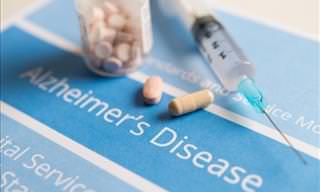Getting enough vitamin D is vital for the development of bones and teeth. Studies show that this fat-soluble vitamin can even reduce cancer cell growth and build resistance to certain diseases. Now, scientists have found a direct link between low levels of vitamin D and high levels of inflammation. The latest findings provide a crucial biomarker for identifying people at a higher risk of developing chronic illnesses with an inflammatory component.
A little bit of inflammation is integral to the body’s self-healing process. Chronic inflammation, however, can lead to a wide range of complex diseases such as type 2 diabetes, heart disease, and autoimmune diseases.
The findings of this research are published in the journal International Journal of Epidemiology.
Related: 7 Subtle Symptoms of Vitamin D Deficiency to Be Aware Of
Vitamin D Can Reduce Inflammation
The study, which has been supported by the National Health and Medical Research Council, analyzed the genetic data of 294,970 participants. The research team used Mendelian randomization on the genetic data of the participants enrolled in the UK Biobank project. Their analysis showed a clear association between vitamin D and C-reactive protein levels, considered an indicator of inflammation. This is the world’s first-ever genetic research project to focus on this topic.

Dr. Ang Zhou, the lead researcher of the study, says that his team’s findings suggest that boosting vitamin D in people with a deficiency may reduce chronic inflammation. According to him, inflammation is our body’s way of protecting tissues against injury or infection. The liver generates high levels of C-reactive protein in response to inflammation. Therefore, when our body experiences chronic inflammation, it also shows higher levels of C-reactive protein.
Related: Did You Know That Vitamin D Can Help Save Your Life?
“This study examined vitamin D and C-reactive proteins and found a one-way relationship between low levels of vitamin D and high levels of C-reactive protein, expressed as inflammation,” Dr. Zhou adds. “Boosting vitamin D in people with deficiencies may reduce chronic inflammation, helping them avoid a number of related diseases.”
The study authors note that boosting vitamin D in people with deficiencies may help reduce chronic inflammation and thus help them avoid several related diseases.
The study also indicates that having sufficient vitamin D concentrations may help ease complications linked to obesity. Healthy levels may lower an individual’s risk or severity of chronic illnesses with an inflammatory component, such as cardiovascular disease, diabetes, and autoimmune diseases.
Senior investigator and Director of UniSA’s Australian Centre for Precision Health, Professor Elina Hypponen, says that these findings are important and provide at least a partial explanation for some of the controversies in reported associations with vitamin D. For example, we have regularly seen evidence that increasing vitamin D levels in people with very low concentrations of the nutrient is beneficial. At the same time, little to no benefit has been reported in many others.
He further states that these results show the importance of avoiding clinical vitamin D deficiency and "provide further evidence for the wide-ranging effects of hormonal vitamin D.”
How to Increase Your Vitamin D Intake

The recommended adequate daily allowance of vitamin D is 600–800 international units for the majority of the population. If you want, you can increase your vitamin D levels in a few simple ways:
* Getting outside and exposing your skin to sunlight.
* Taking a vitamin D supplement.
* Eating foods rich in vitamin D, such as cod liver oil, tuna, salmon, mushrooms, egg yolks, fortified dairy, and fortified non-dairy milk products.
Here are a few bonus materials you can read that provide crucial information related to Vitamin D:
Vitamin D Deficient? Make Sure to Stock Up on These Foods!
Now You Can Make Your Own Vitamin D Supplements at Home!
Learn All You Need to Know About Absorbing Solar Vitamin D
You Won't Get the Vitamin D You Need If You Suffer From...
Share this post with all your loved ones
 Go to BabaMail
Go to BabaMail























































